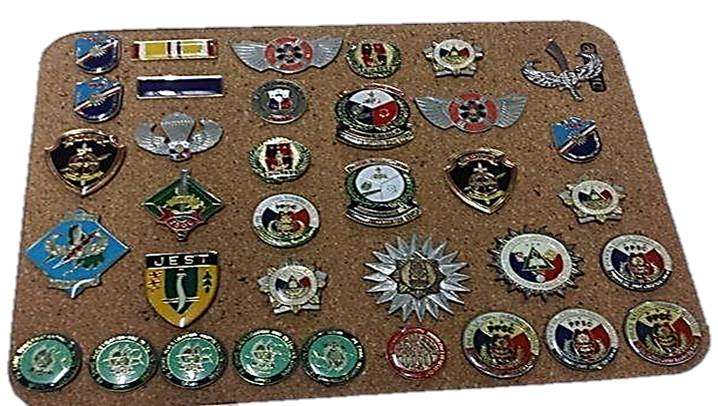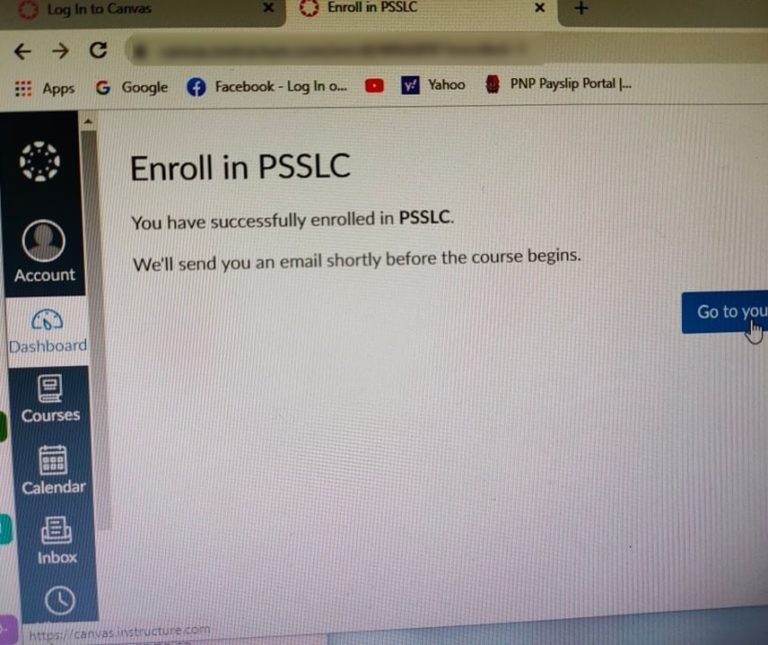Training and Development for PNP Personnel
PNP Training and Development
PNP
Training and Development is a strategic system aimed to develop and improve
staff performance and skills through an organized, innovative, and well-focused
program.
Two Categories of PNP
Training
a. Mandatory Career Courses
b. Specialized Training

For Uniformed Personnel
a. Mandatory Courses. These are compulsory trainings required to be undertaken by the PNP uniformed personnel in order to expand their knowledge for better work performance and career development. They also serve as regular trainings that will help refresh and enhance the knowledge of police personnel on police matters as they prepare to assume the responsibilities of a higher rank.
Course | Rank and Time in Grade (TIG) | Status | Pre-requisite Training |
Public Safety Officer Senior Executive Course (PSOSEC) | PLTCOL with three years TIG | Permanent | Public Safety Senior Officer Advance Course (PSOAC) |
Public Safety Senior Officer Advance Course (PSOAC) | PCPT – PMAJ with two years TIG | Permanent | Public Safety Officer Basic Course (PSOBC) |
Public Safety Officer Basic Course (PSOBC) | PINSP with two years TIG | Permanent | Public Safety Officer Candidate Course (PSOCC)/ Bachelor of Science in Public Safety (PSBS)/ Field Training Program (FTP) |
Field Training Program | Newly Appointed PCOs via Lateral Entry | Temporary | N/A |
Public Safety Officer Candidate Course (PSOCC) | PEMS with two years TIG | Permanent | Public Safety Senior Leadership Course (PSSLC) |
Public Safety Senior Leadership Course (PSSLC) | PMSg with two years TIG to PCMS | Permanent | Public Safety Junior Leadership Course (PSJLC) and Field Training Officers Course (FTOC) |
Public Safety Junior Leadership Course (PSJLC) | PCpl with two years TIG to PSMS | Permanent | Public Safety Basic Recruit Course (PSBRC)/ PSFTP and for PO1/Pat. recruited from CY 2015 onwards: Patrol Officers Development Program (PODP) |
On
February 3, 2022, the Directorate for Human Resource and Doctrine Development
(DHRDD) issued guidelines for the conduct of qualifying examinations for
mandatory career courses.

The
examination’s difficulty level is determined by the specific mandatory career
course that each personnel must take. The examinations will cover the following
areas:
For
PNCO
a.
General Knowledge;
b.
Personnel Policies and other Human Resource Actions;
c.
Intelligence and Investigation
d. Revised Police Operational Procedures; and
e. CMC NLE 2022.
For
PCO
a.
Personnel Decorum under PNP Ethical Doctrine Manual;
b.
Customs and Tradition under PNP Ethical Doctrine Manual;
c.
Drills and Ceremonies under PNP Ethical Doctrine Manual;
d. Revised Police
Operational Procedures;
e. CMC NLE 2022;
f. CIMOP (for PSOSEC) under PNP MC 2020-081; and
g. CSW (for PSOSEC & PSOAC) under PNP MC 2014-059.
However,
any PNP member may be attrited or warrant attrition for failure to pass the
examination. The following elements must concur:
b. A PNP member failed to pass twice the examination required for a mandatory career course, and
b. Such a mandatory course is required for his/her promotion to a higher rank.
To
pass the qualifying exam, you have to read, read, and read (the above cited coverage
with reference link provided) with understanding because there is no substitute
for reading. As Atty. Reynold Villania said, “Ang dapat gawin ng mga pulis
ay mag-aral, magbasa, maghanda at huwag pakoya-koyakoy sa mga training.”
b.
Specialized Training. These are
training programs aimed at providing members of the PNP, particularly uniformed
personnel of the different NSUs and PROs from headquarters down to the precinct
levels, with essential knowledge and specialized skills in the administrative,
technical, and operational fields of police service.
These
training programs ensure the effective and efficient discharge of their duties
and responsibilities as members of the organization and help instill discipline,
integrity, and proper work ethics required to be professional police public
servants.
Integrated Training Program
for Non-Uniformed Personnel (ITP-NUP).
Aims to facilitate the development of the individual NUP so they can function and operate in a skillful and professional manner.
The ITP-NUP has a duration of 33 days divided into three major phases:
|
Phase I. Foundational Courses |
• Orientation Module (Optional) • Team Building Workshop • Basic Customer Service Skills • Public Service Ethics and Accountability • Competency Enhancement Program on Personnel Mechanism |
Eight days |
|
Phase II: Specialized Skills Training for the 1st Level |
• Personnel Policies Budgeting and Planning • Supply Control and Management • Business Writing Correspondence • Seminar on Personnel Safety/ Occupational Hazard in the Workplace |
Nine days |
|
Phase III: Specialized Skills Training for the 2nd Level |
• Supervisory Development Course Track I and/or tracks II and III • Training Management Course/Trainer’s Training Course |
16 days |
Foreign-Assisted Training.
Foreign training is designed to bring together a combination of participants from various countries to share expertise, impart knowledge, foster diplomatic relations between nations, seek to promote cooperation and communication between foreign law enforcement personnel and foster capacity building development.
It is classified into two categories:
a. Abroad/Overseas Training
Program. Sponsors from different countries offer a wide variety of learning
opportunities like training, seminar, study grant, research, observation tour and
other related mission conducted at the host country. Invitation from other
countries also includes the participation of PNP personnel in international
sports, cultural, and religious activities; and
b. In-Country Training Program. Various countries composed of different organizations and foreign counterparts are working in partnership with the PNP to create a variety of police training and capacity building development programs throughout the country. Most of the sponsoring countries focus their initiatives on building the PNP’s law enforcement capacity giving premium on terrorism, counter-intelligence, and Chemical, Biological, Radiological and Nuclear Defense (CBRN) related trainings.
PNP Scholarship Grants are
offered to deserving PNP personnel through in-country/local or foreign
institutions. PNP MC No. 2015-036 prescribes the guidelines and procedures for
availing the PNP Scholarships. Indicated hereunder are some of the regular PNP
Scholarships being offered to PNP personnel.
|
Courses |
Course Description |
Educational Institution |
Qualification/ Requirements |
|
International Graduate School
of Leadership (IGSL) |
Two-
year scholarship on
Master of Arts in
Transformational Leadership
(MATL) for one
or more qualified PCOs
every year |
IGSL |
•
Applicants must be a PCO •
English Proficiency Test Passer administered by IGSL |
|
Master
in National Security Administration (MNSA) |
One
year full time government
funded scholarship
that consists
of 36 units of
multi-disciplinary courses |
MNSA |
•
Nominees with Salary Grade 18 and above or its equivalent |
|
Asian Institute
of Management (AIM) |
Master
in Development Management
Program Scholarship
to PNP personnel |
AIM |
•
Must pass the preliminary evaluation of
the PNP Selection Committee
(Resolution No. 2016-01) |
|
Development Academy
of the
Philippines (DAP) |
•
Training Course on the
Philippine Quality Award (PQA) •
Public Management Development
Program (PMDP) •
Training Courses for Managers
and Supervisors in
the Public Sector |
DAP |
•
Must pass the written exam, essay and interview •
Incumbents/ officers-in charge of permanent executive positions with Salary Grade
25 or higher |
|
Japanese Grant
Aid for
Human Resource Development Scholarship (JDS) |
Two-Year
or One-Year Master’s
Degree courses at Japanese Universities
(instructed in English) •
Kobe University •
Meiji University •
International Christian University •
Nagoya University •
National Graduate Institute
for Policy Studies •
Hiroshima University |
Japanese Universities • International University
of Japan |
•
Filipino Citizen •
Between 22 and 39 •
Must be a permanent employee
of target organization and not a member of the military • Has
2 years of work experience •
Performance rating of at least Very Satisfactory •
Relevant Bachelors Degree •
English Proficiency TOEFL
PBT 550/ IBT 79-80 or IELTS 6.5 or higher •
CP1-1 Kobe University/ CP1- 2 International Christian University/CP1-3
Nagoya University • Had
not been awarded any foreign scholarships for Master/s Degree |
|
Scholarship Program on
Chinese Language
and Culture |
|
Huaqiao University |
PNP
Official who are 25 to
35 years old |
SOURCE/S:
PNP MC No. 2017-016
PNP MC No. 2014-046
PNP Primer